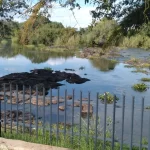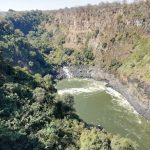
High-quality and sustainable development of tourism demands an efficient national policy of education and professional development, (Mikinac and Perman,2014)Appreciation of the environment starts from an early age, with the ever changing environment, priority has shifted and only a few understand the importance of evolving together with the climate change. With subjects such geography and environment management being taught at certain high schools, you would think environment awareness is getting the proper coverage, however that has not been the case.
Having to reside in a 3rd world country it has been difficult for the country at large to shift focus to embrace climate change, with other problems grabbing our leaders’ attention action needs to be taken for us to live in a better world. According to Marandu 2016 Tourism development is, however, grounded on the country’s unique cultural and natural heritage which is made up of sensitive ecosystems, encompassing national parks and wildlife. The increasing investments in tourism may cause adverse long term effects of developments in biodiversity and loss of wildlife. Having read that statement measures need to be put in place to ensure the future generations get to enjoy the culture and wildlife reserves. Destinations we can brag about are the Victoria Falls, the Kariba dam, the Eastern Highlands Mountains, Hwange national park, the Matobo ruins, Mutemwa pilgrimage just to name a few.
The introduction of the new curriculum a few years ago, one would have thought certain subjects would have been added so as to ensure that every child is considered whether academically gifted or not. We saw the introduction of agriculture, heritage studies and well as bible study in both primary and secondary schools. We also saw geography being demoted to being a non-essential subject which begs the question what will happen if most of the ordinary students were to drop the subject?. Another question is was tourism ever considered to be taught as a subject on its own. Tourism should be taught from as early as primary school level. Children need to fully understand both the benefits and non-benefits of tourism, how to manage tourists attractions and wildlife conservation. In Zimbabwe we already have schools that offer tourism as a subject but these are elite (private) schools with only a few with the privilege of attending them. The setup of tourism education in these schools has been done in such an immaculate way that one would never know unless they have visited the school as a prospective parent or learner.
In the beginning, the vocational departments had been set aside for what the school had considered as a department for slow learners, however with time these departments have evolved and become a haven for different types of students and for some an opportunity to pursue a different path from that of the traditional way of learning. As stated by Marandu 2016, adding tourism to the curriculum equips primary school learners and communities with the requisite knowledge to preserve and protect their environment effectively. Introducing tourism and hospitality education at primary school and community level enhances the implementation of eco- and cultural tourism to the maximum economic benefits of school learners and rural communities. In the case of private schools, scholars go through different training courses such as development of visitor attractions, environment preservation. Examination bodies such as city and guilds and Cambridge awards certificates and diplomas once one has passed the required exams. Scholars also get organise trips and events which will in turn enable graduates to start work after completion of school.
Government school scholars don’t have such an advantage. Its either you sink or swim, nurturing of natural talent is still uncommon amongst traditional families. Tourism is still considered as a female occupation as a result whether it has environment impactions or not tourism is not considered important. Regardless of the beliefs scholars who would have failed their ordinary and advanced level exams can still take upon themselves to study and understand the tourism industry. An important aspect to consider the difference between tourism and hospitality as well as how they complement each other. Tourism has a variety of definitions but the top two would be people traveling for fun. It includes activities such as sightseeing and camping, or the commercial organization and operation of holidays and visits to places of interest. Hospitality on the other hand the friendly and generous reception and entertainment of guests, visitors, or strangers or people welcoming other people into their homes or other places where they work or spend their time. When combined these two words literally meaning ensuring visitor satisfaction once they visit your country for business or pleasure purposes.
Tourism is just not about visitor attractions and seeing wildlife, geography also plays a part in the development of tourism which in turn heightens the importance of environment management. Without all these aspects we are slowly going nowhere. Its imperative the government, investors as well teachers and students get together and discuss on how to include tourism and environment management in the curriculum. These are steps that ensure we safeguard our environment for the future generations to come. Measures need to be put in place, teachers trained in these subjects are already there but are not being given the opportunity to divulge their knowledge.
Having stated the above, we need to embrace the ever-changing world, be able to accommodate the new developments and replace or upgrade the old. Tourism and environmental management education deserves a place in our curriculum for us to be considered as environment conscious individuals.



